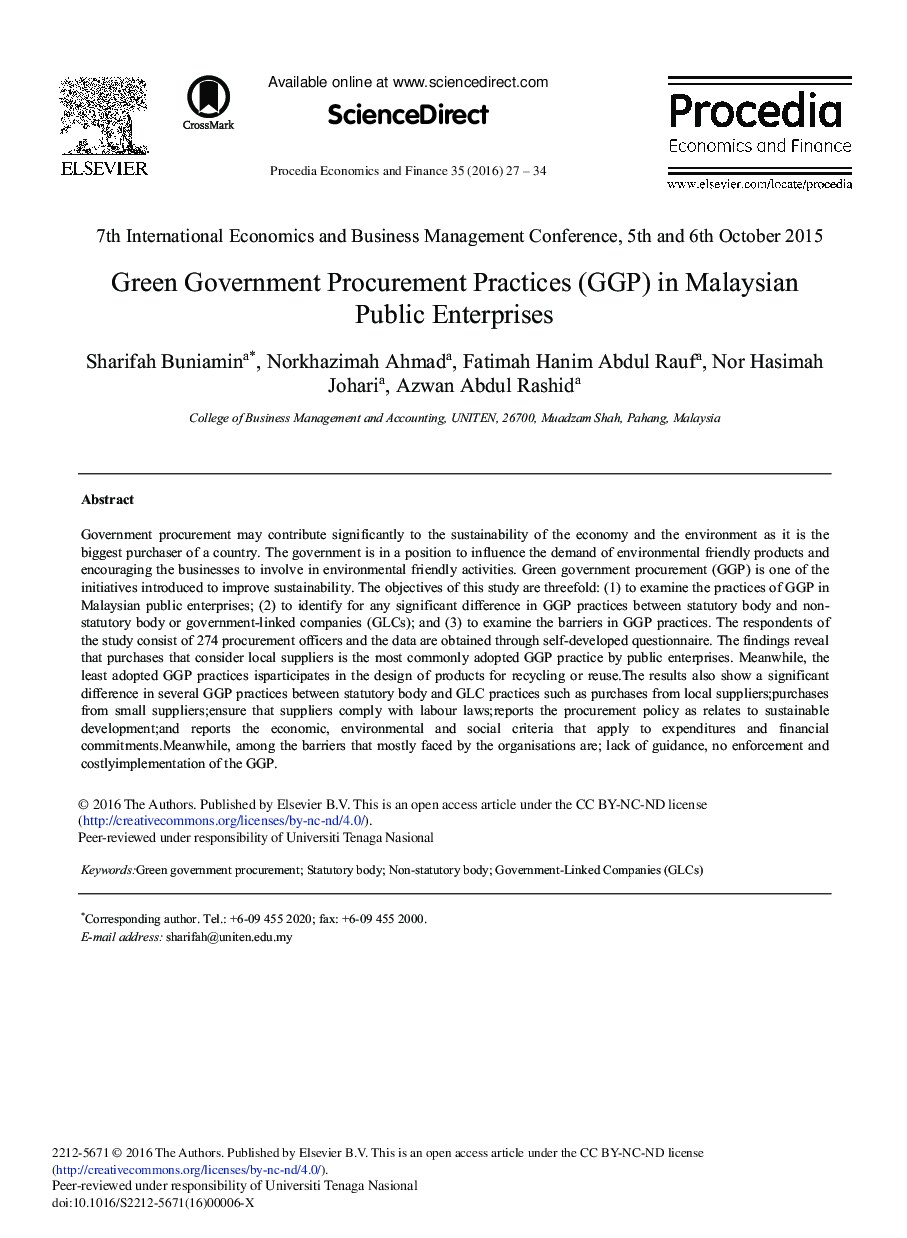| Article ID | Journal | Published Year | Pages | File Type |
|---|---|---|---|---|
| 979820 | Procedia Economics and Finance | 2016 | 8 Pages |
Government procurement may contribute significantly to the sustainability of the economy and the environment as it is the biggest purchaser of a country. The government is in a position to influence the demand of environmental friendly products and encouraging the businesses to involve in environmental friendly activities. Green government procurement (GGP) is one of the initiatives introduced to improve sustainability. The objectives of this study are threefold: (1) to examine the practices of GGP in Malaysian public enterprises; (2) to identify for any significant difference in GGP practices between statutory body and non-statutory body or government-linked companies (GLCs); and (3) to examine the barriers in GGP practices. The respondents of the study consist of 274 procurement officers and the data are obtained through self-developed questionnaire. The findings reveal that purchases that consider local suppliers is the most commonly adopted GGP practice by public enterprises. Meanwhile, the least adopted GGP practices isparticipates in the design of products for recycling or reuse. The results also show a significant difference in several GGP practices between statutory body and GLC practices such as purchases from local suppliers;purchases from small suppliers;ensure that suppliers comply with labour laws;reports the procurement policy as relates to sustainable development;and reports the economic, environmental and social criteria that apply to expenditures and financial commitments. Meanwhile, among the barriers that mostly faced by the organisations are; lack of guidance, no enforcement and costlyimplementation of the GGP.
